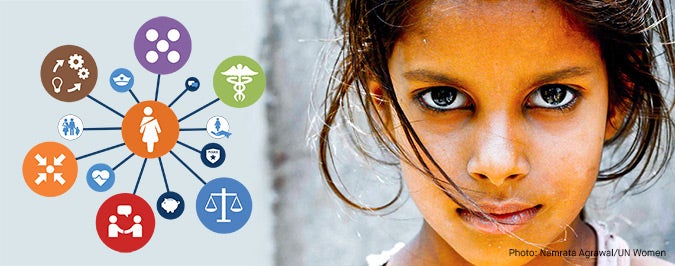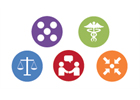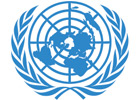Essential Services Package for Women and Girls Subject to Violence

| The package | Event | Stories | @Social |
The United Nations Joint Global Programme on Essential Services for Women and Girls Subject to Violence (the “Programme”), a partnership by UN Women, UNFPA, WHO and UNODC, aims to provide greater access to a coordinated set of essential and quality multi-sectoral services for all women and girls who have experienced gender based violence.
The Programme identifies the essential services to be provided by the health, social services, police and justice sectors as well as guidelines for the coordination of essential services and the governance of coordination processes and mechanisms. Service delivery guidelines for the core elements of each essential service have been identified to ensure the delivery of high-quality services, particularly for low- and middle-income countries, for women and girls experiencing violence. Taken together, these elements comprise the “Essential services package”.
The Essential Services Package aims to fill the gap between the agreements and obligations made at the international level for the provision of services for violence against women, including the agreed conclusions of the 2013 Commission on the Status of Women, and country level activity by providing technical guidance on how to develop quality essential services.” services responses.
The Essential Services Package comprises five overlapping modules, with a sixth module, a companion “Implementation guide” intended to assist in the implementation of the package.
Click here to access to the “Essential services package”
Meeting on Multi-Sectoral Services to Respond to Gender-based Violence against Women and Girls in Asia and the Pacific
Coinciding with the Essential Services Package, UNFPA, UN Women, WHO and UNODC have organized the meeting since 2016. The objective of this meeting is to gather representatives from governments, civil society organizations, UN Agencies and partners of countries across the Asia and the Pacific to strengthen multi-sectoral response to gender-based violence against women and girls in context of the Global plan of action on health systems response to Violence Against Women and Girls and the Essential Services Package for Women and Girls Subject to Violence. This year, the event will be held on 28-30 June, Bangkok Thailand, with UN agencies and partners from 13 countries in Asia and the Pacific.
ESP Event
28 June 2017 - 30 June 2017 Amari Watergate Hotel, Bangkok, Thailand
A Joint UN Programme was established on Essential Services for Women and Girls Subject to Violence with participation of UNFPA, UN Women, UNODC and WHO... More
ESP Stories
Governments, civil society and the United Nations in Asia and the Pacific are strengthening the roll-out and implementation of a multi-sectoral response to urgently address gender-based violence against women and girls across this diverse region. More than 100 delegates representing a range of... More
Made in Cambodia, a day in the life of Chhun Srey Sros, a garment factory worker
In Cambodia, 70 per cent of women are engaged in vulnerable employment; more than 500,000 work in garment and footwear factories. Empowering women to exercise their rights to decent work, UN Trust Fund to End Violence against Women (managed by UN Women on behalf of the UN system) is working closely with partners to ensure discrimination-free work environments in Cambodian factories... More
Counselling ‘silent’ men to stop beating their wives: A case study from Yogyakarta, Indonesia
To understand why violence against women is so widespread in Yogyakarta, you have to understand the psychology of men in traditional Javanese culture.The culture accords men a privileged status and greater freedom of action relative to women. For example, men feel justified to leave their wives and family duties behind when it is time to hang out with their friends. But men also feel they must meet cultural norms and social expectations about what it is to be a real Javanese... More
In a community in Myanmar, a ‘role model’ changes attitudes and actions
Tin Moe Tun farms for a living, but he is also trying to cultivate something else in his little village: an understanding among the men that it’s not OK to demean and attack women and girls. The village is poor, and economic opportunities are hard to come by. Many of the men want to live ‘freely’ and don’t like outsiders telling them what to do, some of them find solace in alcohol and the social atmosphere of tea shops. The comfort this offers is short-lived, and an evening’s drinking can result in the men taking out their frustrations over work on their wives and daughters... More
ESP @Social
Join us on twitter: #GBV and #EndVAW




